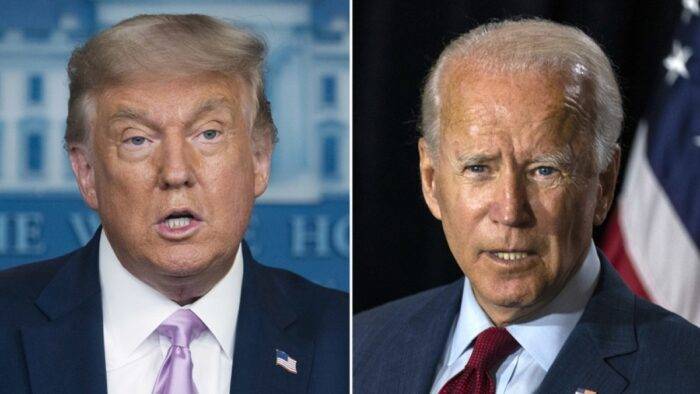New York: Despite incomplete results from several battleground states that could determine the outcome of the U.S. presidential race, President Donald Trump proclaimed victory over Democratic challenger Joe Biden on Wednesday.
The premature move confirmed worries Democrats had voiced for weeks that Trump would seek to dispute the election results. That could set off any number of legal and political dramas in which the presidency could be determined by some combination of the courts, state politicians and Congress.

Early voting data shows Democrats are voting by mail in far greater numbers than Republicans. In states such as Pennsylvania and Wisconsin that do not count mail-in ballots until Election Day, initial results appeared to favor Trump because they were slower to count mailed ballots.
Democrats had expressed concern that Trump would, as he did on Wednesday, declare victory before those ballots could be fully tallied. A close election could result in litigation over voting and ballot-counting procedures in battleground states. Cases filed in individual states could eventually reach the U.S. Supreme Court, as Florida’s election did in 2000.
when Republican George W. Bush prevailed over Democrat Al Gore by just 537 votes in Florida after the high court halted a recount. Trump appointed Amy Coney Barrett as Supreme Court justice just days before the election, creating a 6-3 conservative majority that could favor the president if the courts weigh in on a contested election. “We want the law to be used in a proper manner.
So we’ll be going to the U.S. Supreme Court. We want all voting to stop,” Trump said on Wednesday, even though election laws in U.S. states require all votes to be counted, and many states routinely take days to finish counting legal ballots.
The U.S. president is not elected by a majority of the popular vote. Under the Constitution, the candidate who wins the majority of 538 electors, known as the Electoral College, becomes the next president. In 2016, Trump lost the national popular vote to Democrat Hillary Clinton but secured 304 electoral votes to her 227.
The candidate who wins each state’s popular vote typically earns that state’s electors. This year, the electors meet on Dec. 14 to cast votes. Both chambers of Congress will meet on Jan. 6 to count the votes and name the winner.
Normally, governors certify the results in their respective states and share the information with Congress. But some academics have outlined a scenario in which the governor and the legislature in a closely contested state submit two different election results. Battleground states of Pennsylvania, Michigan, Wisconsin and North Carolina all have Democratic governors and Republican-controlled legislatures.
While most experts view the scenario as unlikely, there is historical precedent. The Republican-controlled Florida legislature considered submitting its own electors in 2000 before the Supreme Court ended the contest between Bush and Gore.
In 1876, three states appointed “dueling electors,” prompting Congress to pass the Electoral Count Act (ECA) in 1887.Under the act, each chamber of Congress would separately decide which slate of “dueling electors” to accept.
As of now, Republicans hold the Senate while Democrats control the House of Representatives, but the electoral count is conducted by the new Congress, which will be sworn in on Jan. 3.


Comments are closed.